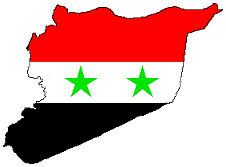Damascus explosions, Bashar’s international winning card
Kofi Annan’s plan in political-security deadlock

The intensity of these explosions has also been much stronger than a simple act by an opposition group. Such an incident with this intensity would certainly need vast information, intelligence possibilities, influence and professional devices-- comparable only to similar incidents in Iraq and Lebanon. Therefore, it seems that the cooperation of a regional government opposing the government of Syria and Bashar Assad, such as Israel or an Arab country, must exist behind this horrific act. Regional and international reactions regarding this terrorist incident are also important and have been noticed by many observers who follow Syria’s crisis.
The US and Europe, while seriously confronting Assad’s regime, have been forced to denounce this act, and by using moderate language, have blamed Al-Qaeda for the explosions. This has caused the existing opposition groups in Istanbul to announce their reservations with regard to the presence of extremist Salafis, who support Al-Qaeda, in line with them against the Syrian government and to separate themselves from this group. Of course, this issue has provided an appropriate atmosphere for the government of Syria to, through stronger international maneuvers, present what happens in the Syrian scene as a terror confrontation with itself. Continuation of instability will, naturally, create anxiety combined with fear for the citizens, which can be regarded as a negative point for the opposition.
In addition to human and material losses and besides the security consequences created by such measures, what today is the issue between Syria and the international community is the enforcement of the 6-item Kofi Annan plan for the country. The two recent explosions in Damascus are indicative of the fact that not only has the first item of this plan not been enforced, but the situation regarding the cease fire and prevention of violence, pointed out in this item, has also worsened. Therefore, even in the most optimistic state, assessments show that the enforcement of this plan has stopped at the first item and there is now no talk of enforcement of other items. This has led opposition representatives to hastily talk about the defeat of Annan’s plan. This is while positions taken by the government of Syria and the Russians have calculatedly been in support of this plan, and they declare measures taken by illegal military groups, including last Thursday’s terrorist acts, as the reason behind the delay of its enforcement.
It should once again be stated that the Syrian crisis cannot be solved through military and security measures. Such explosions and terrorist acts that have occurred during the past days only indicate how complicated the internal security of Syria is, but they can also greatly help the building of more solidarity among supporters of the regime and can help those who have had doubts about the opposition to reject them, and can create more unity among the forces in the army.

